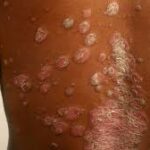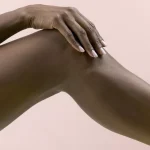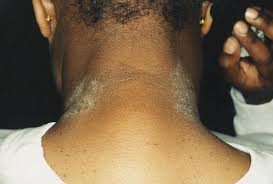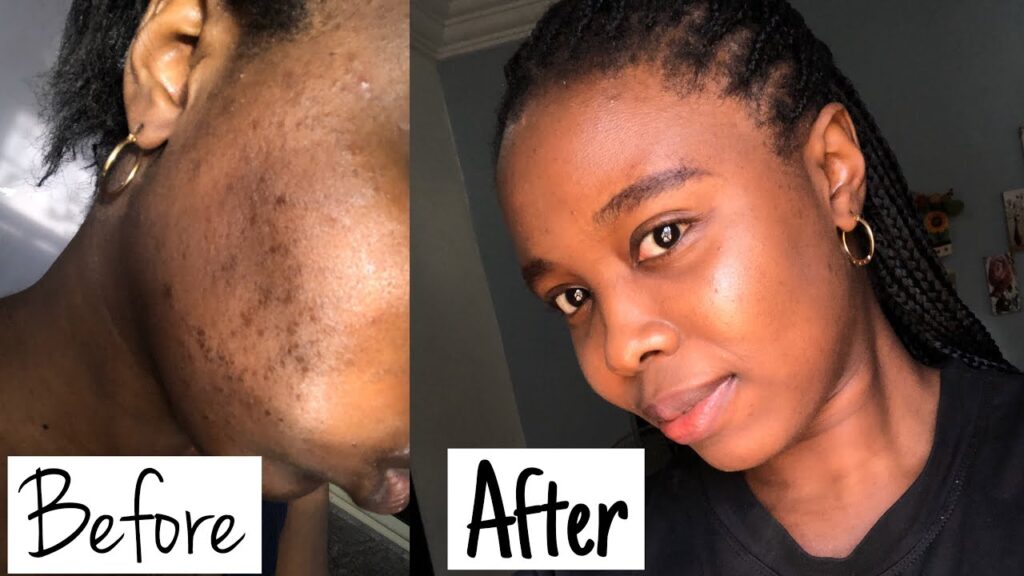
Understanding Your Skin: Psoriasis (On Dark Skin)
September 30, 2024
Choosing the Best Soap for Sensitive Skin
October 14, 2024Eczema is a very common condition globally but it is more common in people of colour and can appear anywhere on the body. It is a type of dermatitis that can cause swelling, dryness, and skin discolouration.
What Is Eczema?
Eczema is a skin condition that weakens your skin’s barrier function, which is responsible for helping your skin retain moisture and protect your body from outside elements. It’s a non-contagious condition that causes patches of dry, inflamed skin.
What are the types of eczema?
There are several types of eczema and it’s possible to have more than one type of eczema at the same time. Each type has unique triggers that can affect your skin’s barrier function, including:
- Atopic dermatitis.
- Contact dermatitis.
- Nummular eczema.
- Seborrheic dermatitis.
- Dyshidrotic eczema.
- Neurodermatitis.
Just like psoriasis, eczema tends to follow a cyclic flare-up pattern. This means that you can have periods where you experience no symptoms, followed by periods where the symptoms flare up.

What Does Eczema Look Like On Dark Skin?
On darker skin tones, eczema may appear darker than the surrounding area, or have a gray, purple, pink, or red hue. Infants are prone to eczema, and 10% to 20% will have it. However, nearly half of all infants diagnosed with eczema outgrow the condition or have significant improvement as they get older.
Causes Of Eczema
The primary signs of eczema are itchiness, dry skin and a rash. These signs indicate that you came into contact with a trigger in your environment that caused your symptoms to start or flare up. It is important to identify environmental triggers and avoid them to reduce your risk of an eczema flare-up in the future.
Who Can Develop Eczema?
Eczema can affect anyone, with any skin colour, and at any age. The symptoms usually appear during childhood and last into adulthood. You might also be more at risk of having eczema if you have a family history or a diagnosis of:
- Dermatitis.
- Allergies.
- Hay fever.
- Asthma.
What Are The Symptoms Of Eczema?
Some common symptoms of eczema include dry skin, itchy skin, skin rash, bumps on your skin, thick & leathery patches of skin, swelling and flaky, scaly or crusty skin. These symptoms and the full-blown eczema flare-ups can look different for each person diagnosed with the condition.
Symptoms of eczema can show up anywhere on your skin. The most common places where you’ll notice symptoms of eczema include on your hands, neck, elbows, ankles, knees, feet, face, especially cheeks, in and around your ears, and lips. Meanwhile, the less common eczema can also occur on your nipples, breasts, folds of skin near your vagina (vulva) and the penis.

How To Prevent Eczema
There are some steps you can take that may prevent eczema flare-ups and outbreaks, including to:
- Moisturise your skin regularly or when your skin becomes dry. Seal in moisture after a bath or shower by immediately applying moisturiser to your skin.
- Use a humidifier if dry air makes your skin dry.
- Avoid irritants and allergens.
- Take baths or showers with warm, not hot, water.
- Stay hydrated and drink at least eight glasses of water each day as water helps keep your skin moist.
- Wear loose clothes made of cotton and other natural materials. Wash new clothing before wearing it. Avoid wool or synthetic fibres.
- Manage your stress and emotional triggers.
How To Treat Eczema
To treat eczema, your dermatologist will first have to diagnose eczema after a physical exam, where they can take a close look at your skin. Most often, people receive an eczema diagnosis as a child, as it’s common among children, but a diagnosis can happen at any age when symptoms arise.
Because the symptoms of eczema can look similar to other conditions, your dermatologist might run various tests to rule out other conditions and confirm your diagnosis. Some of these tests could include:
- An allergy test.
- Blood tests to check for causes of the rash that might be unrelated to dermatitis.
- A skin biopsy to distinguish one type of dermatitis from another.
Once an eczema diagnosis has been confirmed, the treatment options that can be recommended include:
- Soak and moisturise – Soak the affected areas in lukewarm water for around 15–20 minutes to hydrate the skin. Then after that, pat the area dry before applying a moisturising cream, balm or ointment. Reapply your moisturising product several times daily.
- Topical steroids – Steroid creams can help treat flare-ups by reducing inflammation and itching. Steroid products usually require a prescription. Apply steroid creams immediately after a soak or bath and remember to wash your hands after application.
- Oral steroids – In cases of severe flare-ups, your doctor may prescribe oral steroids for eczema in exceptional circumstances due to their adverse effects.
Eczema is a chronic condition, however, it is possible to prevent or minimize flare-ups with the right management. To help manage eczema, remember to avoid taking hot or extremely cold showers or baths. Also avoid using fragrances, such as perfumes and colognes, choose fragrance-free cleaning products, beauty products, and detergents, avoid wearing tight-fitting clothes, and bathe for 5–10 minutes each day, followed by patting skin dry and immediately moisturising the skin.

